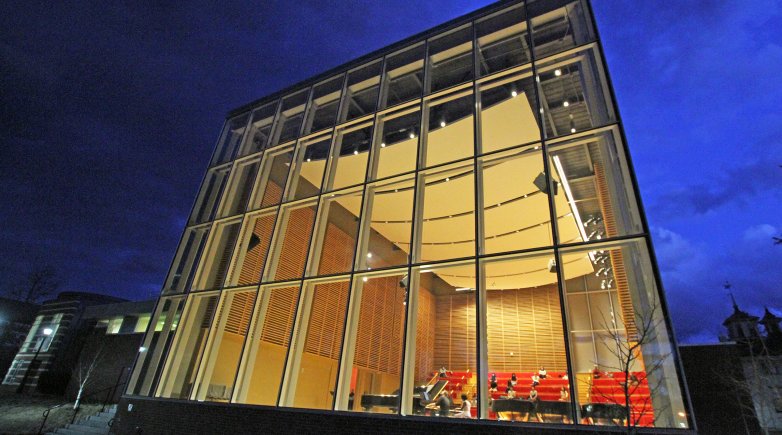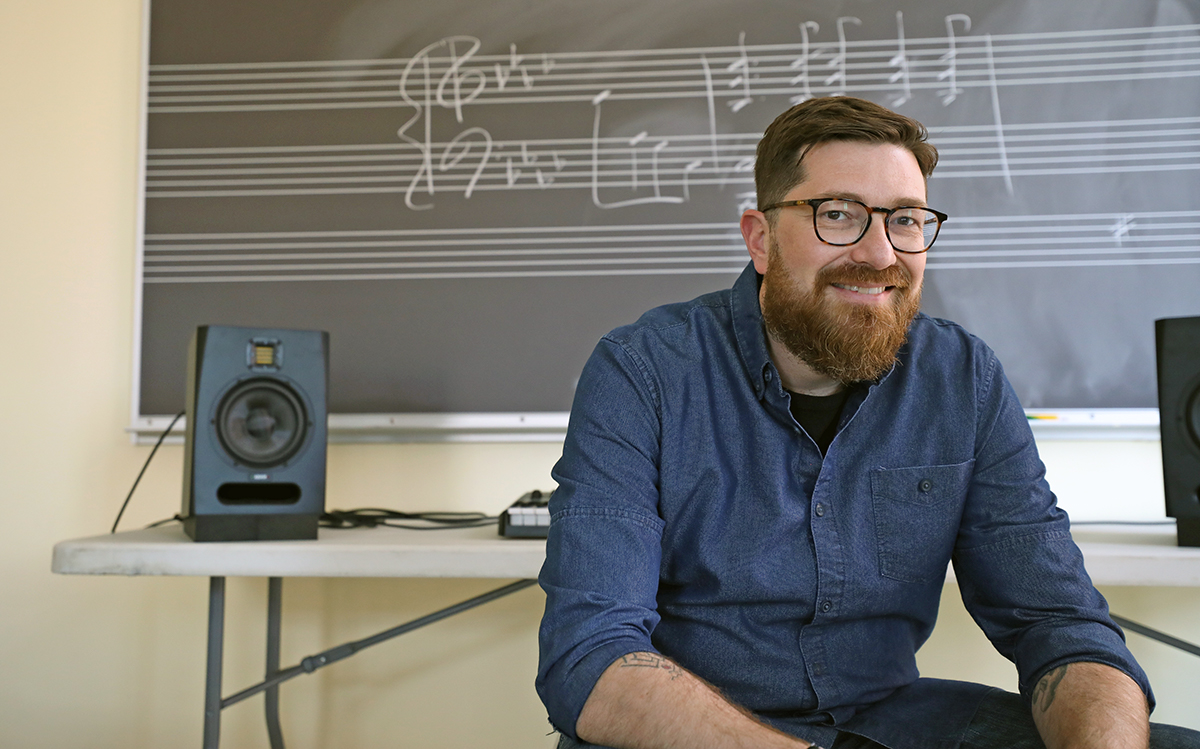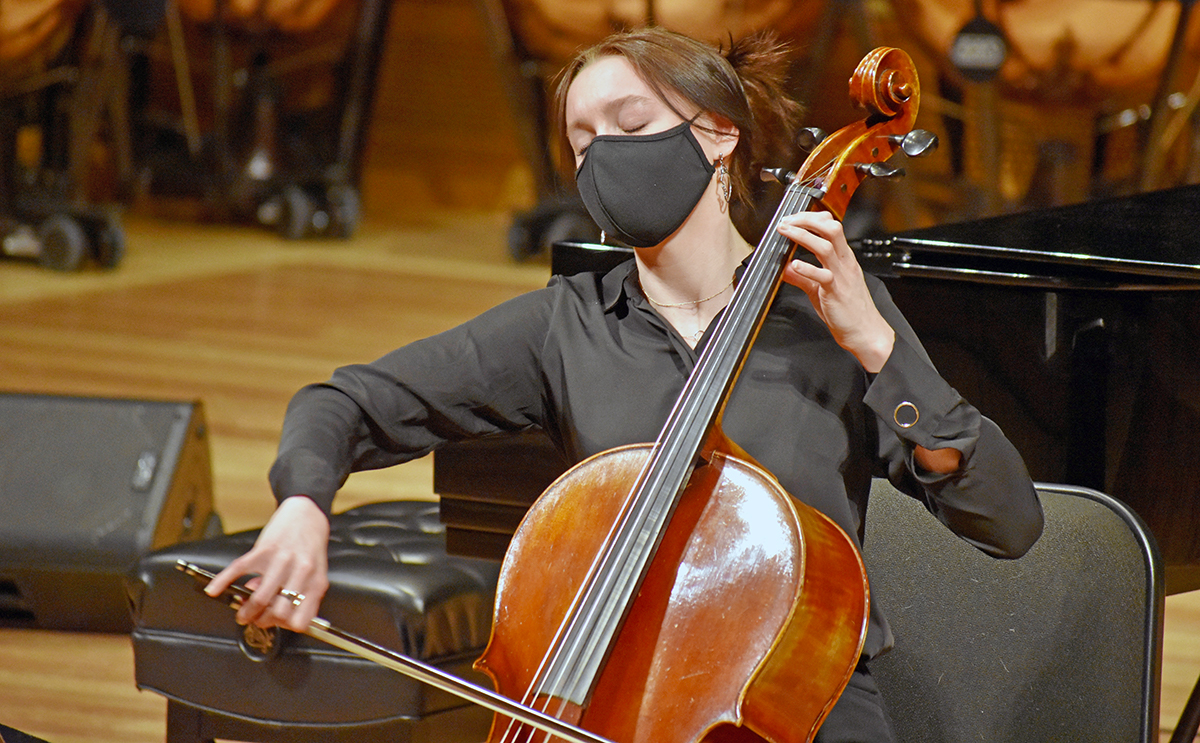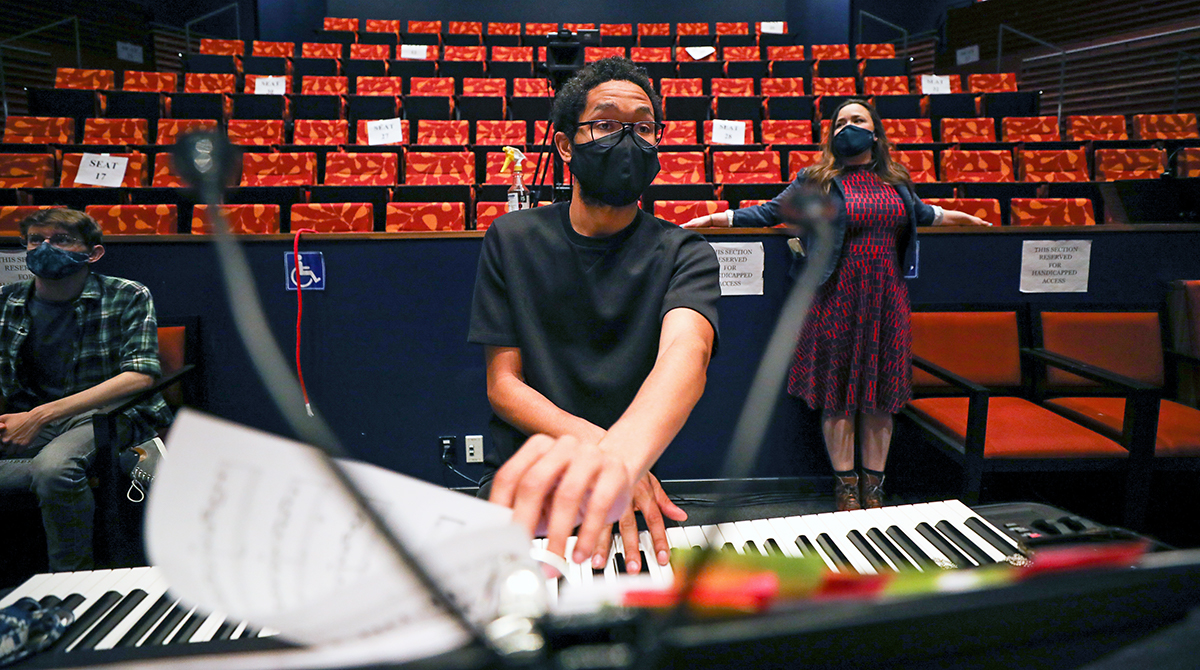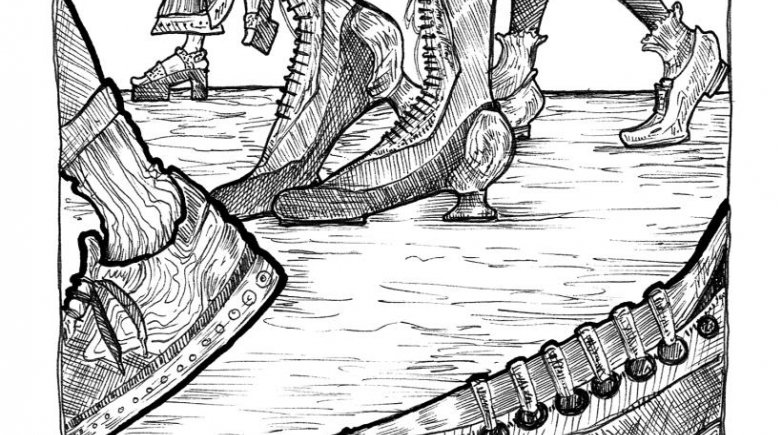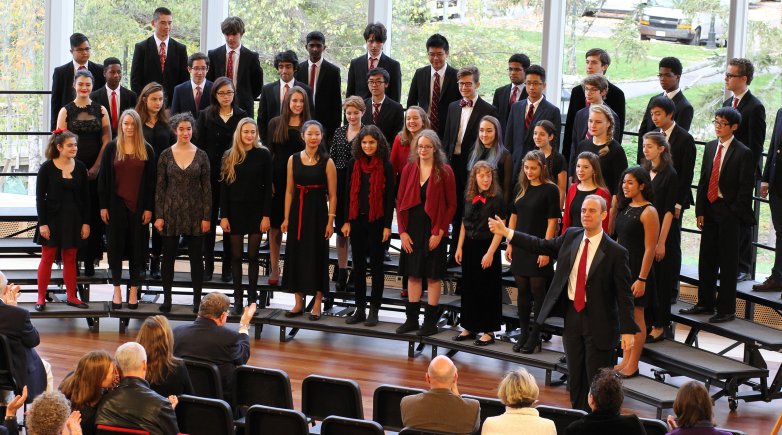Symphony of change
Exeter’s vibrant music program decides where to go next.
The Bowld, the Class of 1959 Music Building Addition’s performance space.
It is early March, and Kristofer Johnson is feeling hopeful. As director of choral activities and chair of the Music Department, he’s steered Exeter’s musical community through the upheaval caused by a global pandemic and a calendar year spent physically distanced, through remote learning or on-campus hybrid learning.
Now, as the winter term draws to a close, the choirs and orchestra have just started meeting in person for the first time in nearly a year. Singers are doubling up on masks, layering fabric masks over surgical ones, while musicians who play wind instruments use bell covers to block the exit of any aerosol droplets. Everyone stands nine feet apart, and they meet in the rooms with the most ventilation. These precautions are small prices to pay, however, for the renewed energy and excitement of in-person interaction.
“Every rehearsal has a few extra steps, and a few extra minutes of making sure that things are safe and the kids are distanced,” Johnson says. “But the students are so hungry to make music and to be together doing it that it’s been really joyful.”
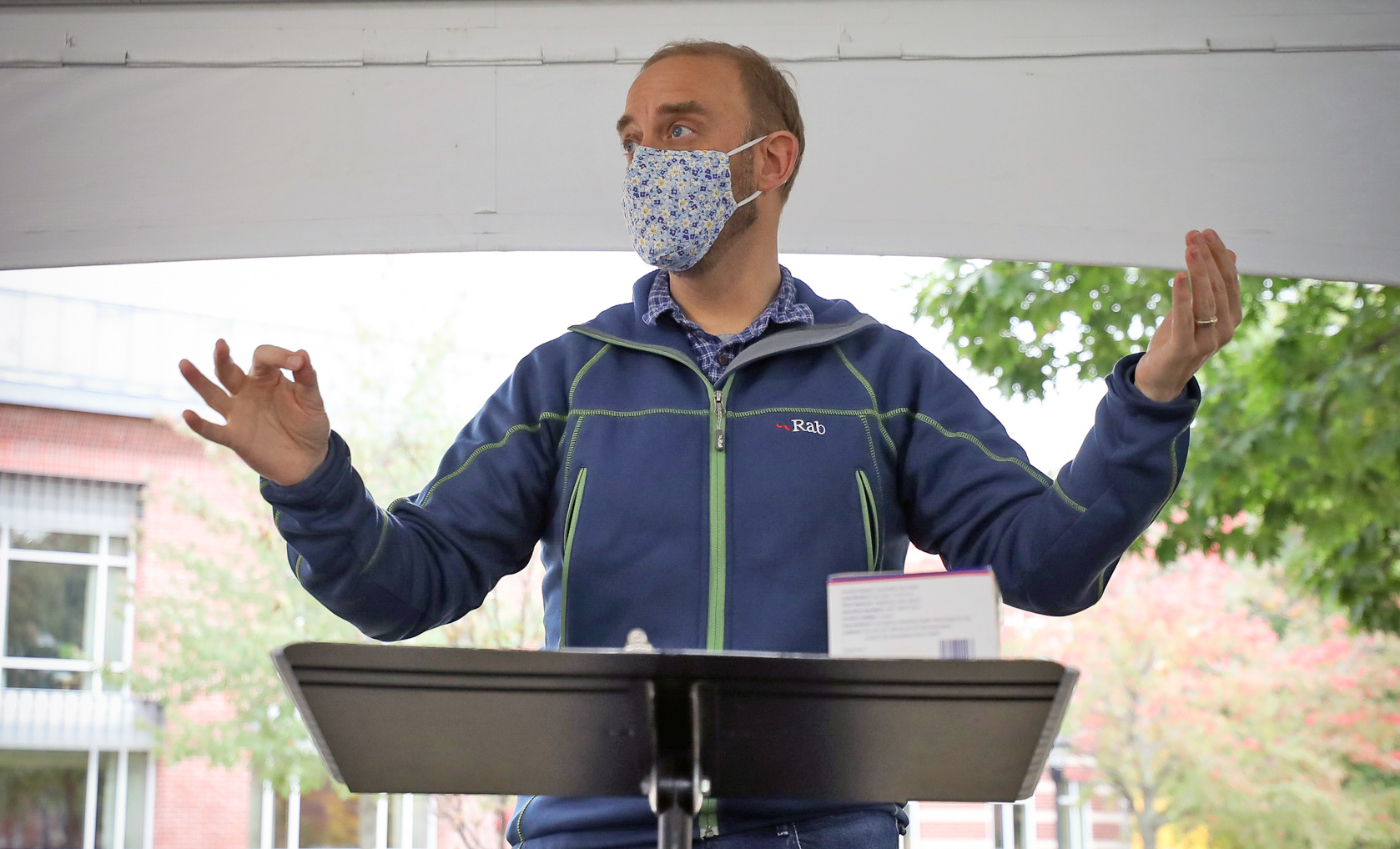
This spring, as Exeter’s students, faculty and staff — like the rest of the world — tentatively emerge into a new kind of normalcy, music makers and fans alike have a lot to look forward to. As part of a commitment to diversity, equity and inclusion at both the school and the departmental level, Johnson and his colleagues are working to decenter the traditional Western musical canon, open up the department to more modern musical styles, and provide support and encouragement to anyone who’s making music or wants to make music at Exeter.
“We are really undertaking a comprehensive review of how we program for all of our ensembles,” explains Johnson. “It’s an ongoing effort, and we’re all digging in and trying to look honestly at where we’ve been, and what it is we’re willing to stand behind.”
Making music the modern way
In the fall of 2020, Eric Schultz, director of the new electronic and emerging music program, was surprised and delighted to see that 64 students signed up for the new Electronic Music Composers Collective (aka EMC2) course. “That’s 5% of the school,” he points out. Such robust numbers for a brand-new course taught by a new faculty member, Schultz says, “confirmed for all of us that there’s a lot of interest in doing this kind of music [at Exeter].”
Before Schultz’s arrival, his future colleagues in the Music Department had designed EMC2 as an evening workshop that functions similarly to the Concert Choir, Symphony Orchestra and Choral Union, but focuses on making contemporary styles of music — including pop, hip-hop, electronic dance music (EDM), ambient and experimental — primarily using technology. Schultz has taken charge of the course, and renamed it Modern Music Making to encompass a wider range of musical styles beyond the electronic.
